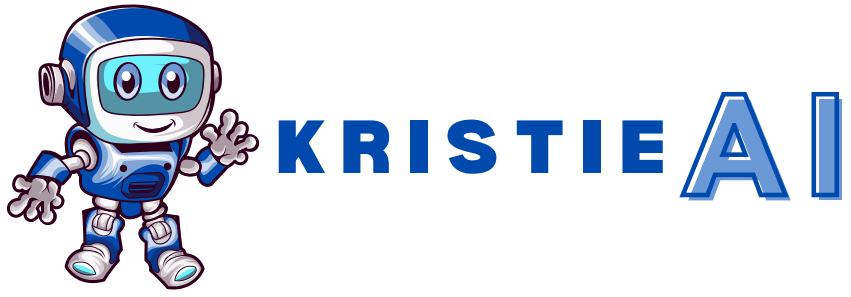Artificial intelligence (AI) is becoming a big part of our world. AI is now used in many areas, like healthcare, education, social media, and even in the justice system. While AI brings exciting possibilities, it also raises some important questions. Is it safe? Is it fair? Can people trust it?
To answer these questions, consultations on AI are held by governments and organizations. These discussions focus on how to make AI safe, ethical, and responsible. This article will explore how ethics, safety, and regulations are considered in AI consultations, and it will look at important organizations like the Information Commissioner’s Office (ICO) and UNESCO. Knowing how these consultations shape AI’s future can help us understand the role AI will play in our lives.
________________________________________________________________________________________________________________
The Role of Ethics in AI Consultation
Defining Ethical AI
Ethical AI means creating and using AI systems that follow basic rules of fairness and respect for people’s rights. AI is expected to work in ways that do not harm people or treat them unfairly. Ethical AI is discussed in consultations to make sure that AI tools help society and do not cause harm or bias.
Key Ethical Principles
In AI consultation, several key ethical principles are considered, such as:
- Fairness and Inclusion: AI should treat everyone fairly, without showing favoritism or discrimination.
- Transparency: AI should work in ways that people can understand. The process and results should be clear to those affected by it.
- Privacy: The personal data used by AI must be protected. People’s information should be handled responsibly and securely.
How Ethical Principles Are Addressed in Consultations
In consultations, ethical principles are discussed to make sure AI use respects people’s values. Governments and organizations create guidelines that shape how AI works in a fair and ethical way. For example, in the UK and EU, public consultations are held to allow people to share their opinions, ensuring that AI follows society’s values.
________________________________________________________________________________________________________________
AI Safety in Consultation Processes
Importance of Safety in AI Development
AI safety is important because unsafe AI systems can lead to errors and harm people. In high-stakes areas like healthcare and finance, safety is especially important. AI consultations focus on creating rules that make AI systems safe and prevent them from causing harm.
Measures to Ensure AI Safety
Several measures are used to keep AI safe:
- Risk Assessment: Possible risks of AI systems are identified early to avoid issues later.
- Safety Guidelines: Standards are set for using AI responsibly to protect users.
- Testing and Monitoring: Regular testing checks if AI systems work as expected and stay safe over time.
Public and Industry Input on AI Safety
Public consultations gather ideas from many sources, like government agencies, businesses, and the public. Organizations like ICO and UNESCO seek opinions from experts and citizens, which helps them understand the risks of AI and find ways to keep it safe.
________________________________________________________________________________________________________________
Regulatory Approaches in AI Consultation
The Need for AI Regulation
As AI technology grows quickly, creating rules, or regulations, is necessary to manage its impact. These regulations help ensure AI develops responsibly, addressing issues like privacy, fairness, and safety. However, making these regulations can be challenging because AI technology is always changing.
Common Regulatory Approaches in AI
In AI consultations, two main types of regulations are discussed:
- Soft Law vs. Hard Law: Soft law includes guidelines that are flexible and can adapt to changes in AI. Hard law includes strict rules that must be followed and can lead to penalties if broken.
- Sector-Specific Regulations: Different industries, such as finance and healthcare, may have special rules for AI because of the high risks in these fields.
The Role of Consultation Papers
Consultation papers are created to gather opinions on new AI regulations. These papers explain possible rules and ask for feedback from the public and experts. For example, UNESCO’s consultation paper on AI regulation collects input from different countries to create fair AI guidelines for everyone.
________________________________________________________________________________________________________________
ICO AI Consultation: Ensuring Responsible AI
Overview of ICO’s Role in AI Consultation
In the UK, the Information Commissioner’s Office (ICO) plays an important role in AI consultation. The ICO focuses on protecting people’s data and making sure AI follows ethical rules. Through its consultations, the ICO helps shape policies that guide responsible and safe AI use.
ICO Consultation on Generative AI
Generative AI is a type of AI that creates new content, like text, images, or music. It presents unique challenges because it can sometimes spread false information or misuse personal data. The ICO’s consultation on generative AI focuses on these issues, aiming to make sure generative AI follows ethical and safe practices.
Key Outcomes Expected from ICO Consultations
The ICO’s consultations may lead to new guidelines for generative AI. These guidelines are expected to include stricter data protection, better transparency, and ethical use standards. By following these guidelines, companies will be better able to protect user data and ensure that AI use is safe.
________________________________________________________________________________________________________________
UNESCO’s Role in Global AI Consultation
UNESCO’s Mission in AI
UNESCO is an international organization that focuses on culture, education, and human rights. Its mission includes promoting ethical AI practices that can be applied worldwide. UNESCO works to create global standards that encourage responsible AI use and respect for human rights.
UNESCO Consultation Paper on AI Regulation
UNESCO’s consultation paper on AI regulation discusses key topics like ethics, safety, and human rights. By collecting opinions from experts and different countries, UNESCO hopes to address global issues in AI, such as data sharing and fairness. These guidelines are meant to create fair AI standards that apply to everyone.
Expected Global Standards from UNESCO’s Consultation
UNESCO’s goal is to create international guidelines for AI through these consultations. These global standards, if widely accepted, could help countries adopt similar practices, making AI safer and more trustworthy worldwide.
________________________________________________________________________________________________________________
Safe and Responsible AI Consultation: Emerging Best Practices
What “Safe and Responsible AI” Means
Safe and responsible AI is AI that works reliably, does not harm people, and respects society’s values. Making AI safe and responsible is essential for building public trust in AI technology.
Core Principles of Responsible AI
Some core principles of responsible AI include:
- Accountability: AI developers should take responsibility for their AI systems and their effects.
- Human Oversight: Humans should be able to oversee and control AI to prevent its misuse.
How Consultations Address Responsibility in AI
In consultations, these principles are used to guide companies and governments toward safe AI practices. Through ICO, UNESCO, and other consultation processes, responsible AI principles are discussed and used to develop rules that make AI safer and more ethical.
________________________________________________________________________________________________________________
Future Trends in Ethics, Safety, and AI Regulation
Increasing Role of Transparency
In the future, transparency will likely become even more important. AI consultations will continue to push for systems that are easy to understand, helping users know how decisions are made and why.
Adaptive Regulations for New AI Developments
As AI changes, regulations may need to adapt quickly. Future regulations are expected to become more flexible to keep up with fast-developing technology like generative AI, ensuring safety and alignment with society’s needs.
Potential for Unified Global AI Standards
Global AI standards may be possible in the near future. With organizations like UNESCO leading consultations, a shared framework for ethics and safety in AI might be created, which could benefit people around the world.
Frequently-Asked-Questions(FAQs)
Ethics in AI ensures that AI systems are designed and used in ways that respect human rights and promote fairness. Ethical AI prioritizes principles like transparency, privacy, and inclusivity, aiming to avoid harm or bias. In consultations, ethical guidelines are developed to ensure AI aligns with societal values, which builds public trust and safeguards against misuse.
AI consultations prioritize safety by identifying risks early, setting guidelines, and establishing testing procedures to monitor AI performance over time. Since AI is increasingly used in high-stakes fields like healthcare and finance, consultations gather input from the public, industry experts, and organizations to ensure AI systems operate safely and minimize potential harm.
The Information Commissioner’s Office (ICO) in the UK is pivotal in ensuring that AI, especially generative AI, is used responsibly. By focusing on data protection, transparency, and ethical use standards, ICO consultations guide the development of policies that safeguard user data and address issues like misinformation and personal data misuse, making generative AI safer and more ethical.
UNESCO works internationally to create AI standards that are ethical and respect human rights, gathering insights from various countries through consultation papers. This global approach helps address issues like data sharing and fairness, aiming to establish unified standards that make AI safer and more trustworthy worldwide.
Best practices for responsible AI include principles such as accountability, human oversight, and transparency. Consultations promote these practices to guide companies and governments in creating AI that aligns with society’s values, ensuring that AI remains reliable, safe, and subject to human control, especially as it becomes more integrated into daily life.
Conclusion
Ethics, safety, and regulation are essential to AI consultations. These consultations work to make AI fair, safe, and respectful of human values. Through efforts by organizations like ICO and UNESCO, standards are being set to address these issues and guide AI development. As AI continues to evolve, ongoing consultations and collaborations will be key to ensuring AI remains trustworthy and beneficial for everyone.




